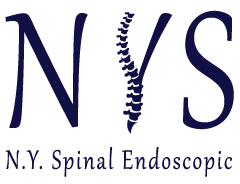Pain Management Overview
When you have a problem with your heart, you see a cardiologist. When you have cancer, you see an oncologist. What about when you have pain? Unfortunately, it is not so simple. You may start off with your primary care physician and then referred to an orthopedic surgeon. How did you go from ouch to under the knife? Or perhaps you started with a physical therapist or chiropractor, but are not improving. What do you do next?
At New Jersey’s Spine Institute of North America, we understand that most people would prefer to exhaust non-operative options for pain first and foremost. That’s why we provide an assortment of conservative pain management solutions before progressing to surgical options.
WHAT IS PAIN MANAGEMENT?
Pain is a broad and complex symptom. It could be a simple twinge that flares up quickly and subsides, or it could be a warning sign that there’s a serious underlying condition. Chronic pain is pain that persists for weeks, months or even years. Pain management is a medical discipline that focuses on the treatment of chronic pain.
Specialists in pain management come up with treatment options to help patients manage this often overwhelming sensation. To practice proper pain management, physicians need to be able to draw on multiple disciplines. They also need to be fully prepared to offer prevention techniques, diagnosis and treatment plans. Our team of doctors is full of leaders in the field of pain management.
There are many different pain management treatment options available, including a variety of:
- Medications
- Injections
- Therapies
- Least invasive procedures
- Surgeries
HISTORY OF PAIN MANAGEMENT:
The treatment of pain as a disease truly requires the knowledge and expertise of a pain management specialist. The field of chronic pain management was formed in the 1980s as a convergence between several different specialties (see table below). Each discipline contributes a unique perspective to the field.
However, mastering the right combination is what separates a pain specialist from imposters. Many providers claim to be pain specialists, but few have undergone the necessary training and even less have the board certification to prove so. Often seeing one of those other physicians leads to poor care, no improvement and lots of frustration!
Who Is A Suitable Candidate For Injections?
- Annular tear
- Cysts
- Compression fractures
- Lumbar disc herniation
- Lumbar spinal stenosis
- Failed conservative treatment
When you are suffering from debilitating pain and your painful symptoms persist despite conservative measures, interventional pain management such as injections may be recommended. The goals of these injections are to reduce and relieve pain and/or manage disabling symptoms while improving a patient’s overall quality of life. These injections also help the physician pinpoint the pain generator and target a solution. Learn more about this interventional pain management technique below.
WHY SEE OUR PAIN MANAGEMENT DOCTORS?
Before leaving your house every morning, do you know where you are headed and what you are doing? Shouldn’t your pain journey be the same? With convenient locations in East Windsor, Marlton and East Brunswick, we make it simple to meet a doctor who specializes in pain management.
Our specialists will collect a detailed history, review all medical records and tests and perform a detailed physical exam to produce the correct diagnosis. From there, we use a personalized, multi-disciplinary approach to create a treatment plan for our patients. Armed with an accurate diagnosis and early treatment using least-invasive interventions and appropriate medications, we help our patients relieve their pain and revive their lives!
Who Should See A Pain Management Doctor?
TYPES OF TREATMENT OFFERED BY OUR PAIN MANAGEMENT SPECIALISTS
Many specialties deal with the pain experienced by patients, as mentioned in the table above. But the experts at Spine Institute of North America incorporate a multidisciplinary approach to find the source of your pain and come up with a treatment plan that works for you. This process could involve testing to determine its cause and medications or physical therapy to help you manage pain. We also employ injections and least invasive surgical procedures.
Specialty |
Knowledge |
Medical Skill/Treatment |
| Anesthesiology | Acute, Chronic, Cancer Pain | Needle skills, regional anesthesia, spinal anesthesia |
| Neurology | Peripheral Neuropathy, Headaches | Neuropathic Treatment, Headache Management |
| Neurosurgery | Spine Pathology | Implantable medical devices, Spine Repair |
| Orthopedic Surgery | Musculoskeletal Pathology | Spine and Joint Evaluation/Repair |
| Psychiatry | Stress, Anxiety, Depression | Psychologic evaluation, biopsychosocial evaluation |
| Radiology | Imaging Modalities | Procedural imaging |
| Rehab Medicine | Physical Disability | Physical Therapy |
